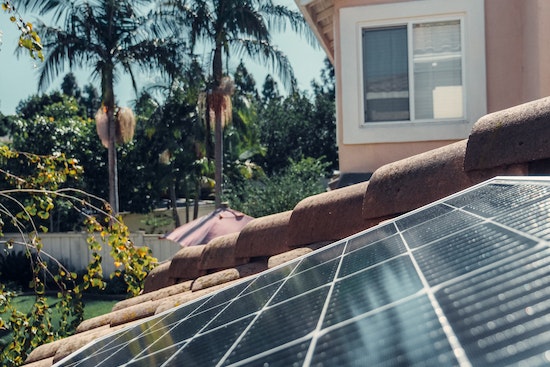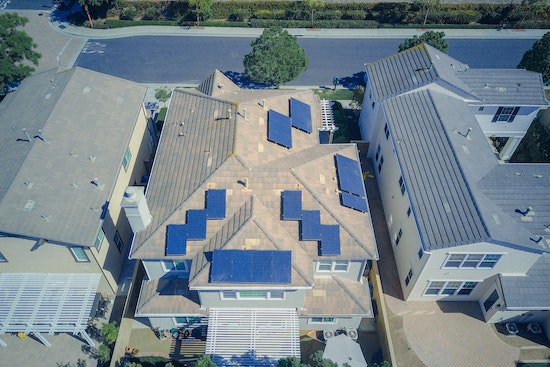
Empowering Adventures: How to Choose Between Portable Power Station vs Solar Generator?
As technology continues to advance, so does the demand for reliable power solutions on the go. Whether you're an avid outdoor enthusiast, a frequent camper, or someone who values preparedness during emergencies, having access to a portable and efficient power source is crucial. In this comprehensive guide, we'll explore the world of portable power stations vs solar generators, helping you make an informed decision that aligns perfectly with your needs and preferences.

Portable Power Station: A Brief Overview
Portable power stations have emerged as game-changers in the realm of off-grid power solutions. These compact yet robust devices are designed to store electrical energy and deliver it when you need it most. The beauty of a portable power station lies in its versatility – it can be charged using various power sources, making it an excellent choice for both indoor and outdoor use.
Understanding the Working of Portable Power Stations
At the heart of a portable power station is its battery pack. This pack is responsible for storing electrical energy, which can be obtained from different sources, such as standard AC wall outlets, car chargers, or solar panels. The stored energy is in the form of direct current (DC), which is then converted into alternating current (AC) through an inverter. This conversion enables you to power a wide range of devices, from smartphones and laptops to small appliances and medical equipment.

The Anker SOLIX F2000 stands out as one of the best portable power stations in the market due to its exceptional features and capabilities. With an immense 2048Wh or even larger 4096Wh capacity, it offers abundant power to keep essential appliances running during off-grid life or outdoor adventures. The substantial 2400W AC output ensures it can handle high-demand devices simultaneously without overloading. Moreover, its impressive 1000W solar input capacity allows for quick and sustainable recharging wherever there is sunlight, promoting eco-friendly energy usage. The use of EV-grade batteries ensures long-lasting performance, capable of enduring up to 3,000 charge cycles or approximately 10 years of use.
Solar Powered Generator: An Introduction
A solar-powered generator harnesses the abundant energy of the sun to generate electricity. Through the use of photovoltaic cells, sunlight is converted into DC electricity. The generated power can either be used directly or stored in an integrated battery for later use.
How Do Solar Powered Generators Operate?
Solar-powered generators operate on the principle of photovoltaic effect. Solar panels, made of semiconductor materials like silicon, absorb sunlight and release electrons. This electron flow creates a direct current (DC) that can be converted into alternating current (AC) through an inverter.
The advantage of solar-powered generators lies in their renewable and sustainable nature. By tapping into the sun's energy, these generators offer a clean and eco-friendly power solution. Moreover, they are particularly useful for off-grid living, camping, and remote locations where traditional power sources may not be readily available.
With InfiniPower™ technology and LiFePO4 batteries, the Anker SOLIX F1200 Solar Generator is built to last over a decade, making it a reliable and durable power solution even with everyday use. The 5-year full-device warranty further guarantees worry-free usage. Its powerful 1229Wh capacity and 1500 wattage ensure it can easily power essential devices and appliances during trips. The high conversion efficiency with up to 80% charge in 3.6 hours and the smart sunlight alignment using Suncast technology maximize solar energy capture even on cloudy days. With 13 ports, including fast-charging USB-C and AC ports, it offers versatile charging options for various devices. Overall, the Anker SOLIX F1200 excels in providing long-lasting, efficient, and comprehensive power solutions, making it the top choice for a solar generator.
Power Storage vs. Power Generation: What’s the Difference?
The following is a more detailed description of portable power station vs solar generator—
Types of Power Sources?
- Solar Panels
Solar panels are the primary power source for solar generators. These panels capture sunlight and convert it into electrical energy through photovoltaic cells. They are an eco-friendly and sustainable way to charge your solar-powered generator, making them ideal for extended off-grid use and reducing your carbon footprint.

- Wall Outlets
Portable power stations can be easily charged through standard AC wall outlets. This option is practical when you have access to electricity and want a fast and reliable recharge.
- Car Charging
For adventurers on the move, portable power stations often come with a car charger adapter. This feature allows you to recharge the station using your vehicle's 12V socket, making it perfect for road trips and camping excursions.
- Wind Turbines (for some portable power stations)
While less common, some portable power stations can also be charged using wind turbines. This renewable energy source is valuable in areas with consistent and strong winds.
H3: The Convenience of Portability
Both portable power stations and solar-powered generators offer a level of portability that traditional generators simply cannot match. However, there are some distinctions worth considering.
Portable power stations are specifically designed for ease of transportation. They are lightweight, compact, and often come with handles or carrying cases, making them convenient to carry wherever your adventures take you. Whether you're camping, hosting an outdoor event, or dealing with a power outage, a portable power station ensures that you have reliable power at your fingertips.
Solar-powered generators, while generally larger than portable power stations, have undergone significant improvements in terms of mobility. Many models now feature collapsible solar panels and sturdy handles, enabling easier transportation and storage. Though they may be bulkier than power stations, their sustainable energy source and capacity to power essential devices make them an attractive option for outdoor enthusiasts.
Energy Source and Recharging Options
Portable power stations offer the advantage of being multi-faceted in terms of energy sources. You can charge them using solar panels, wall outlets, or car chargers, giving you more flexibility in powering your devices. This versatility ensures that you can keep your power station charged regardless of where you find yourself.
Solar-powered generators, as their name suggests, rely solely on solar energy for power generation. This green energy solution is both environmentally friendly and cost-effective. However, it's essential to consider recharging options during periods of low sunlight or cloudy weather. Some solar-powered generators offer alternative charging methods, such as wall outlets or car chargers, as backup options to ensure continuous power supply.
Portable Power Station or Solar Powered Generator: Which One Should You Buy?
The choice between a portable power station and a solar-powered generator depends on your unique needs, preferences, and use cases.
If you prioritize versatility, mobility, and the ability to charge your power source from various outlets, a portable power station might be the ideal choice for you. It provides a reliable and convenient solution for charging multiple devices, making it suitable for camping trips, outdoor events, and emergency situations.
On the other hand, if you are passionate about sustainability and seek a power solution that relies solely on renewable energy, a solar-powered generator is the way to go. While it may not have the same versatility in charging methods, it offers a greener and eco-friendly approach to off-grid power.
Final Thoughts
In conclusion, both portable power stations and solar-powered generators offer unique benefits and cater to different needs. While portable power stations provide versatility and multiple charging options, solar-powered generators promote sustainability and environmental consciousness.
Before making your decision, assess your power requirements, consider factors like portability, energy capacity, and charging options, and choose the solution that best aligns with your lifestyle and values.
At Anker, we are committed to empowering your adventures with reliable and sustainable power solutions. Whether you're an outdoor enthusiast or an emergency-preparedness advocate, we have the perfect product to meet your needs.
Frequently Asked Questions About Portable Power Station vs Solar Generator
Below are additional concerns people have about the matter of portable power station vs solar generator—
Are Portable Solar Power Stations Worth It?
Yes. A solar generator power station is definitely worth investing in. It harnesses energy from the sun, which makes it efficient and provides more power compared to a regular portable power station.
Which is Better Power Station or Generator?
The choice between a portable power station and a solar generator depends on the specific needs and preferences of the user. A portable power station is a versatile device that can store electricity from various sources, including solar panels, AC outlets, or car chargers. It typically offers a higher power capacity and can be charged from multiple options, providing flexibility in various situations. On the other hand, a solar generator is a specific type of portable power station that relies solely on solar energy for recharging. It's ideal for environmentally-conscious users or situations with ample sunlight. Ultimately, the better option will depend on factors like power requirements, availability of sunlight, and personal eco-friendly considerations.
What are the Disadvantages of Portable Power Stations?
Portable power stations offer several advantages, such as convenience, portability, and versatility. However, they also have some disadvantages. One significant drawback is limited power capacity compared to traditional stationary generators or power grids. This means they may not be suitable for powering high-energy-demand appliances or devices for extended periods. Additionally, their recharge time can be relatively long, especially when relying on solar panels alone. Depending on the model and features, they might also be more expensive upfront than conventional generators. Despite these disadvantages, portable power stations are still valuable for their portability and ability to provide a reliable power source in various outdoor or emergency situations.















